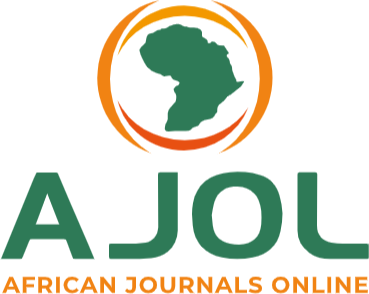Statistical Tests of the Experimental Method in Social Research
الاختبارات الإحصائية في المنهج التجريبي في البحوث الاجتماعيّة
Abstract
انتقل الاهتمام في مجال البحوث الاجتماعية من البحوث الكيفيّة إلى البحوث الكميّة، والتي تتطلب استخدام الاختبارات الاحصائيّة. وهو ليس بالأمر الهيّن، فهو يتطلب مهارةً عاليةً وتحكماً في الإحصاء، تحليل البيانات وتفسير النتائج بصورة صحيحة، حتى يتمكن الباحث من حسن اختيار واستخدام هذه الأساليب، وبالتالي تعميم نتائج دراسته. ويعتبر المنهج التجريبي من أصعب المناهج استخداماً في البحوث الاجتماعية وذلك لأنّه يرتبط بالسلوك البشري. إذ لا يمكن للباحث أن يتحكم في كلّ المتغيرات المؤثرة في الظروف التجريبيّة. وقد جاءت هذه الدراسة بهدف الكشف عن أسس وضوابط البحث التجريبي وكذا كيفية اختيار الاختبارات الإحصائية المناسبة.
Downloads
References
Grelley, P. (2012). Contrepoint — La méthode expérimentale. Informations sociales, 174, 23-23. https://doi.org/10.3917/inso.174.0023
- Arabic references in English :
Benseghier, A. (2013). The difficulties encountered by a scientific researcher in the field of Humanities and social sciences and the limits of scientific objectivity. Journal of the generation of Humanities and social sciences (1), pp. 25-38.
Albaldawi, A. A. (2007). Methods of scientific research and statistical analysis: planning research, collecting and analyzing data manually and using SPSS (Volume 1). Amman: Dar Al-Shorouk.
Jarallah, I. K. A. (2019). The reality of the dependence of the magnitude of the impact (practical significance) and statistical significance in educational and psychological research with experimental and semi-experimental designs. Ashraqat educational journal (20), pp. 31-1.
Alshamraty, H, AlFadl.M. (2005). Statistical methods in decision-making (Volume 1). Amman: Majdalawi publishing and distribution house.
Ben Ismail, R. Hafsi, S. (2018). Methodology in experimental research and epistemological obstacles get in the way of the experimental researcher and the proposed solutions. Journal of integration, pp. 70-87.
Bourzgue, Y. Um al-Khuyut, I. (2021). The importance of employing indicators of practical significance in the results of psychological and pedagogical studies. Journal of the researcher in the humanities and Social Sciences, 4 (13), pp. 62-55.
Tighezza, A. B. (2012). Exploratory and confirmatory factor analysis (Volume 1). Amman: Maysara House.
Djafour, R. Adaikah, D. (02019). Criteria for choosing the appropriate statistical method in sociological research. Journal of studies (75), pp. 109-126.
Adil, S. (05 03, 2020). Wilhelm Wundt is the father of psychology and founded the first official laboratory for psychological research. Retrieved from writings of: https://kitabat.com/cultural
Adjabi, A. (2019). Experimental research method in psychology. Social Empowerment Journal (Mağallaẗ al-tamkīn al-iğtimāՙī), 1(4), 307-325. https://doi.org/10.34118/sej.v1i4.839
Gharaibeh, F. Et al. (1997). Methods of scientific research in the social sciences and humanities. Faculty of Economics and Commerce, University of Jordan.
Keddi, A. (2009). Foundations of scientific research in economic and Administrative Sciences. Algeria: research house for translation, publishing and distribution.
Mufti, A. (2021). Controls the choice of statistical method in differential hypotheses within human and Social Research. Tabna Journal of academic scientific studies, 04 (03), pp. 385-406.
Mansouri, S. (2020). Statistical hypotheses and methods of testing them in sociological research. Journal of studies and research, pp. 662-673.

This work is licensed under a Creative Commons Attribution-NonCommercial 4.0 International License.




















